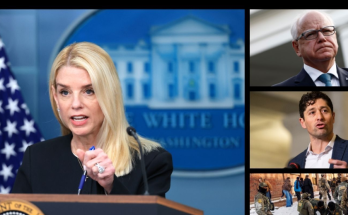Jake Tapper Criticizes the Media for Ignoring Real Stories Just Because Fox News Is Covering Them

In a recent discussion, CNN anchor Jake Tapper raised crucial concerns about the mainstream media’s tendency to overlook significant stories merely because they are highlighted by Fox News. His remarks came during an interview on *The Remnant* with Jonah Goldberg, where he was promoting his new book, “Original Sin.” Tapper’s insights illuminate a pivotal issue in journalism today: the bias that affects news reporting and public perception.
The “Fox News Effect” and Its Implications

During his conversation with Goldberg, Tapper elaborated on the “Fox News effect,” a phenomenon where mainstream outlets often disregard stories simply because they are covered by Fox News. This sentiment was echoed by Goldberg, who pointed out how this bias is evident across various subjects, including immigration policies and the controversial Benghazi incident. He noted that when Fox News reports on certain issues, many journalists reflexively choose to dismiss them, potentially depriving the public of valid narratives.
Tapper expressed his discomfort with this pattern, stating that this attitude ultimately detracts from journalistic integrity. He stressed that the credibility of a story should not be determined by its source, but rather by the facts and evidence it presents. This raises a critical point: when media outlets turn a blind eye to news covered by their competitors, they risk fulfilling a disservice to their audience.
Media Bias and its Consequences on Public Awareness

One of the significant worries highlighted by Tapper is how this selective coverage impacts public awareness. By censoring stories that could be relevant or important, media outlets play a crucial role in shaping the narrative and public discourse. In an era where misinformation spreads rapidly, it becomes even more important for journalists to remain objective and scrutinize all angles instead of discrediting stories based solely on perceived affiliations.
For instance, Tapper cited instances where the media has dismissed videos of President Joe Biden appearing disoriented as misleading, influenced by narratives coming from the White House. He argued that such dismissals do not challenge the accuracy of the content itself but rather reflect an unwillingness to entertain dissenting perspectives. This tendency can lead to a perception that journalists are not just reporting the news but are also curating it to fit a specific agenda.
The Responsibility of Journalists
At its core, Tapper’s criticism underscores the responsibilities of journalists in ensuring that all pertinent stories receive fair consideration. With the rise of polarized media consumption, it has become increasingly vital for journalists to acknowledge and report on significant issues, regardless of their origin. Dismissing a story because it appears on a channel perceived as biased only serves to propagate further division and confusion among the audience.
Moreover, the discourse surrounding media accountability is more critical now than ever. As Tapper highlighted, consumers of news are constantly evaluating the credibility of various outlets. When mainstream media chooses to ignore stories simply because they are associated with Fox News, they risk alienating portions of their audience who may find value in that coverage. This not only undermines trust in the media but also diminishes the diversity of perspectives available to the public.
Additionally, the phenomenon of selective reporting raises questions about the integrity of journalism as a whole. Are reporters fulfilling their duty to inform the public, or are they inadvertently becoming participants in the political landscape, aligning themselves with one side of the narrative? This is an important debate that needs to be addressed within newsrooms and among the broader media community.
Encouraging Critical Thinking Among Audiences

Tapper’s critique is a call to action for both journalists and audiences alike. It challenges media consumers to be more discerning in their choice of news sources and encourages them to seek out stories from various outlets, rather than succumbing to confirmation bias. It is crucial for audiences to engage with content critically, exploring different viewpoints to draw informed conclusions about pressing issues.
As media landscapes evolve, the importance of robust, unbiased reporting becomes even more significant. Journalists must strive to present a fuller picture of the news, giving attention to all relevant stories, irrespective of their source. In doing so, they will foster a healthier dialogue within society, paving the way for informed discussions and decisions among the public.
Conclusion

In conclusion, Jake Tapper’s insights shed light on the growing concern surrounding media bias and the responsibilities journalists hold in today’s complex landscape. By recognizing the importance of engaging with stories from all outlets, audiences can contribute to a more informed society. It’s essential for both consumers and journalists to reflect on how bias affects coverage and to promote a discourse that values truth and comprehensive reporting.
Embrace the conversation about media accountability and seek diverse perspectives to stay informed. Take a moment to explore various news sources and engage critically with the narratives presented. Your understanding and insights can make a significant difference!


